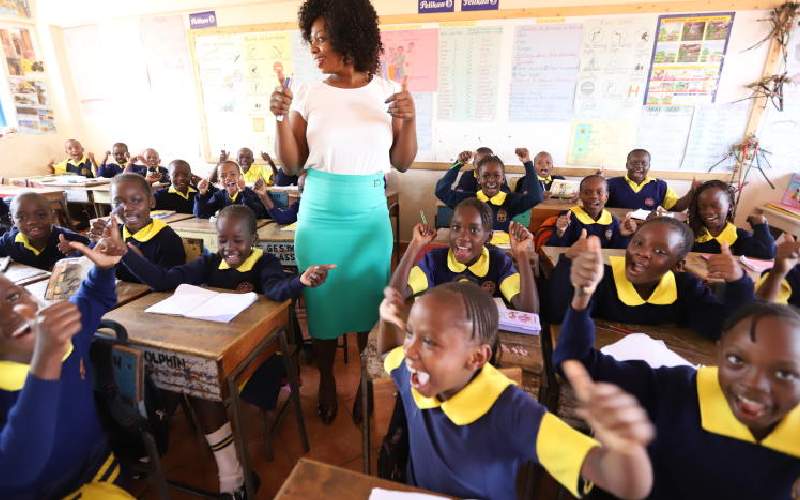×
The Standard e-Paper
Kenya’s Boldest Voice

A teacher warms up grade three pupils at Golden Elites during their Competency-Based Curriculum rehearsals at their school in Kisumu on September 16, 2019. [Denish Ochieng, Standard]
When Education Cabinet Secretary George Magoha likened the Competency-Based Curriculum (CBC) to a train that had left the station, we knew that the die had been cast.